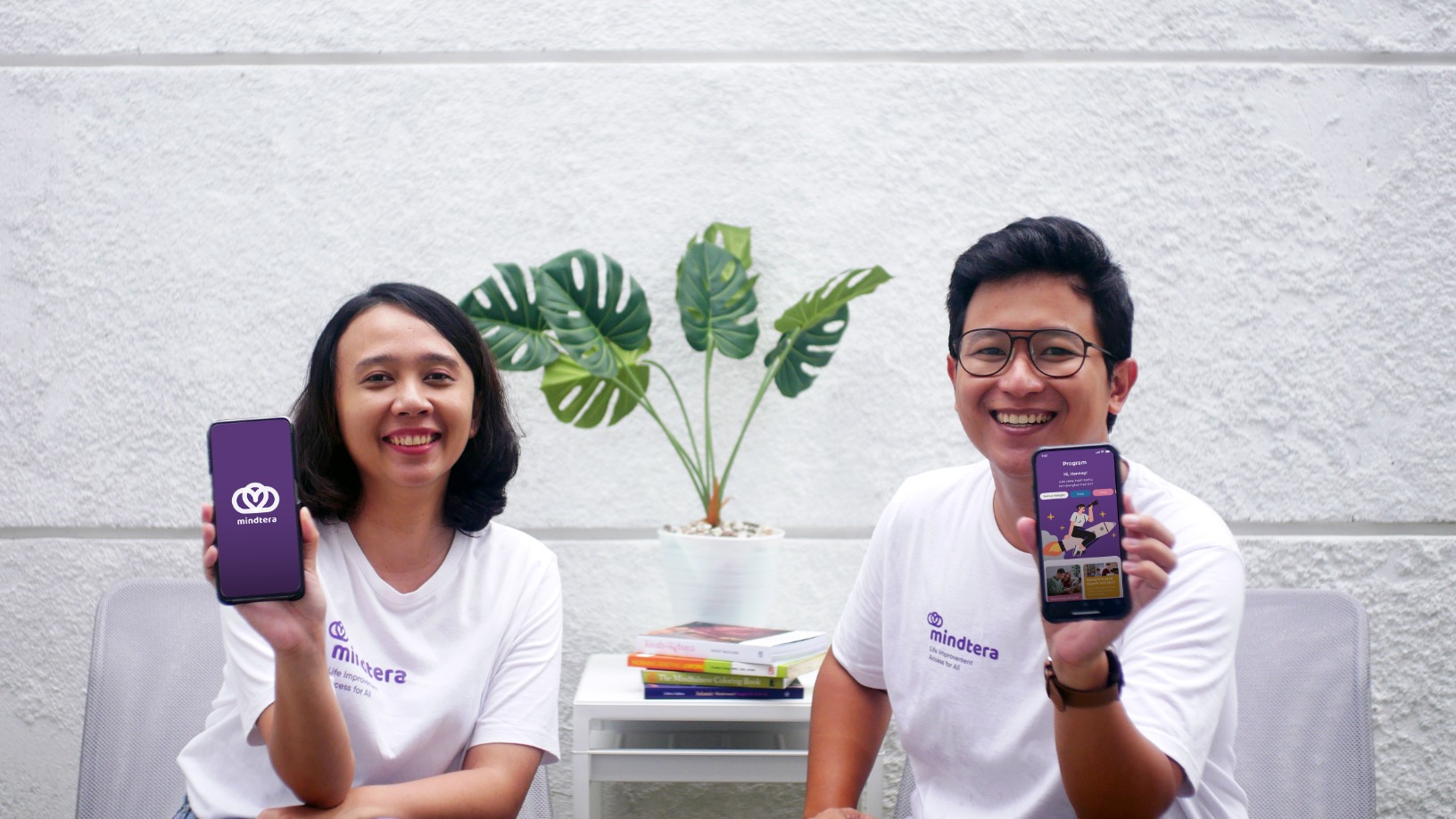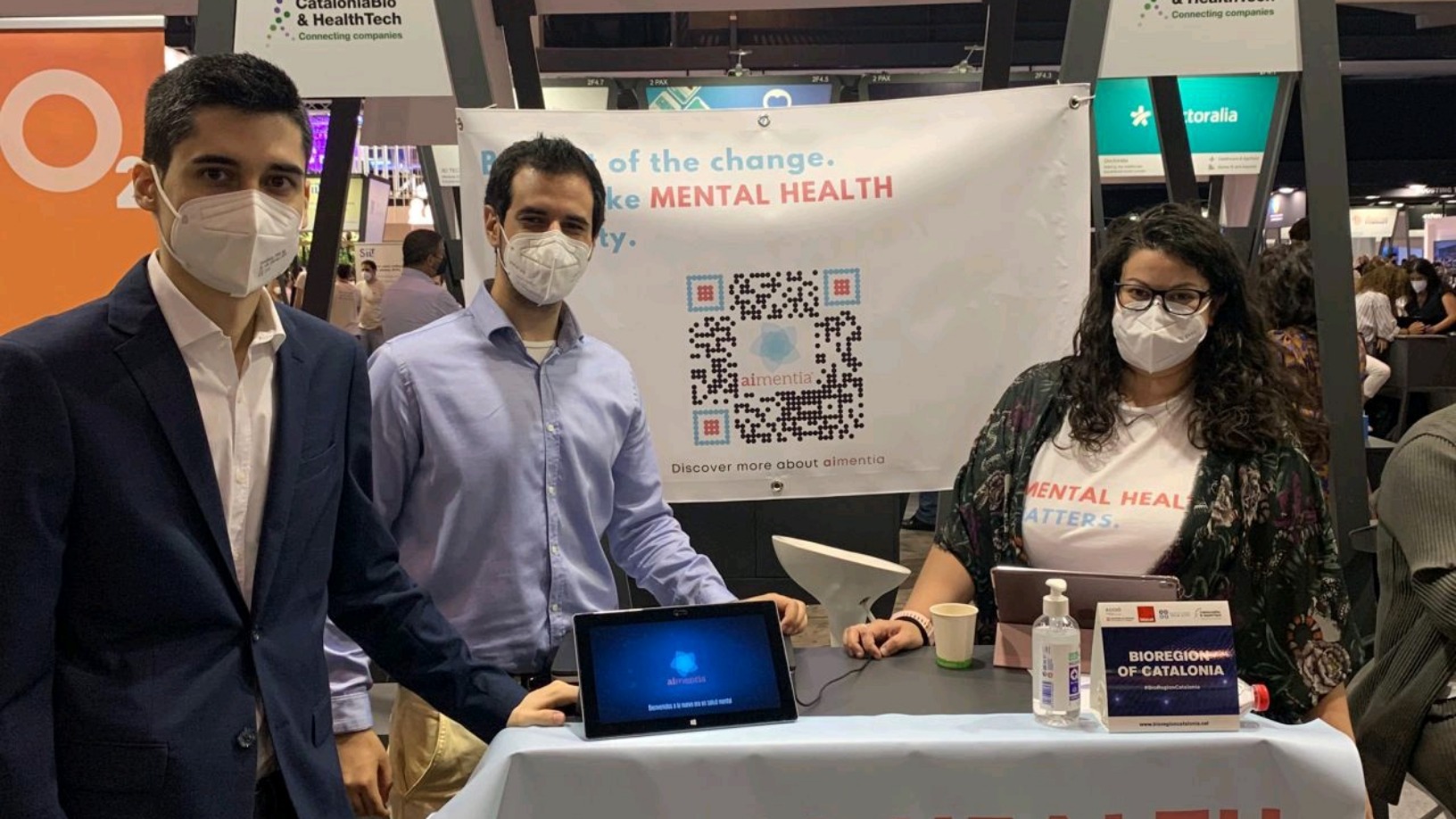“Prevention is better than cure” is a well-known healthcare principle. Physicians encourage exercise and healthy lifestyle choices to reduce the risk of illness. Indonesian life coach Tita Ardiati believes this principle also applies to mental health, especially during the current pandemic when stress, burnout and anxiety among people have increased.
Ardiati founded wellness education startup Mindtera in April to help clients improve their mental resilience and avoid more serious problems like anxiety and depression. Mindtera’s bite-sized lessons, each taking just five minutes a day, teach users how to recognize different emotions, respond to challenging situations, and build healthier relationships.
“Rather than solving mental health issues, our focus is on providing education to prevent such issues,” Ardiati told CompassList in an interview. Mindtera’s curriculum includes lessons on building healthy relationships, making better lifestyle choices, and charting a personal career path.
The lessons are delivered through a mobile app with a chatroom to share experiences and ask questions. The aim is for users to not only gain knowledge but to empower others by sharing that knowledge. “Once someone recognizes their own emotions, they will be able to manage them,” she said.
“It's becoming clear that you can't survive just by being book-smart, but there aren't many addressing this problem. Our bite-sized curriculum has a wider acceptance rate in the target market, and the potential for scaling up is higher,” she added.
In August, Mindtera raised $106,000 in seed funding from East Ventures, Silicon Valley-based Hustle Fund, angel investor Henry Hendrawan, who is on Traveloka’s executive board, and other angel investors from the local tech sector. It will use the funds to develop its 15-strong team, emphasizing capacity building and product development. Ardiati said some aspects of the product blueprint also need further development. She declined to provide details.
Multiple intelligence framework
Ardiati developed Mindtera’s curriculum after studying various multiple intelligence frameworks and adapting them to the Indonesian culture. She also consulted psychologists to find ways to make mental health education more socially acceptable.
Mindtera’s curriculum is split into four segments: emotional intelligence, social intelligence, physical intelligence, and personal development. In the emotional intelligence lessons, participants learn about a wide range of emotions, from sadness and joy to guilt and fear, and how each emotion can be managed in healthy ways. The social intelligence curriculum focuses on building interpersonal relationships with family, friends and colleagues.
Once someone recognizes their own emotions, they will be able to manage them
Physical intelligence involves not only exercising and building muscles. Many people, Ardiati said, ignore their own physical needs, like resting or exercising, due to their busy schedules. Finally, the personal development segment focuses on helping each person realize their potential within the scope of their career.
“The work culture in Indonesia favors career advancement towards management roles, but some people prefer making use of their skills in specialized roles instead of leading and delegating.” The course, she said, can help people determine their preferences and skillset, leading to better career advancement choices.
Each Mindtera lesson is delivered through videos, audio recordings and short quizzes. The five-minute duration is a design choice made with busy Indonesians in mind. Ardiati initially tested the approach using guided sessions on WhatsApp and learned that five-minute lessons got the best results.
Personal experience
Ardiati decided to establish Mindtera after struggling with mental health issues while working in YouGov, a British international Internet-based market research and data analytics firm. “I was a team leader managing around 12 people in the Middle East and the Asia Pacific,” Ardiati said. “Around that time, my second child was born, and I encountered difficulties in managing my career and my personal life.”
She sought help from professionals, including a clinical psychologist and a life coach. “I learned about emotional and social intelligence, building positive relationships, and how to be more empathetic with my children and my team.” Eventually, she became a life coach herself, and after working with corporate clients, she wanted to help more people learn how to manage stress and build healthy relationships.
“It's hard to find [formal] education curricula that develop emotional and social intelligence in Indonesia,” Ardiati said, as these skills are mostly taught outside of the schooling system. Most schools in Indonesia focus solely on “IQ and academic performance,” she added, leaving many Indonesians under-equipped to face challenging life situations.
“This type of education is like vitamin supplements that you regularly take to maintain your health. People can learn these skills even though they are not currently struggling with mental health issues.”
Interest from corporates
Ardiati credited Hendrawan with helping to sharpen Mindtera’s focus and branding. Early on, it was not immediately clear whether Mindtera was an education platform or a mental health counseling platform, she said.
“The truth is wellness and mental health are the results of what we offer, which is education. So we sharpened our branding to reflect our education focus,” she said. Mindtera’s services, provided through its app, are currently available for free. After September, it will begin charging a monthly IDR 89,000 fee for access to all lessons and features.
Mindtera also offers life coaching services directly to corporations, with lessons delivered through online conference calls instead of the app. It is now in talks with interested corporations. Educational institutions like universities are also potential clients. “We have developed a curriculum that such institutions can use to elevate their students,” Ardiati said.
“For now, to establish a consumer base, we still need to build more brand and general awareness of the importance of this multi-intelligence model.”












